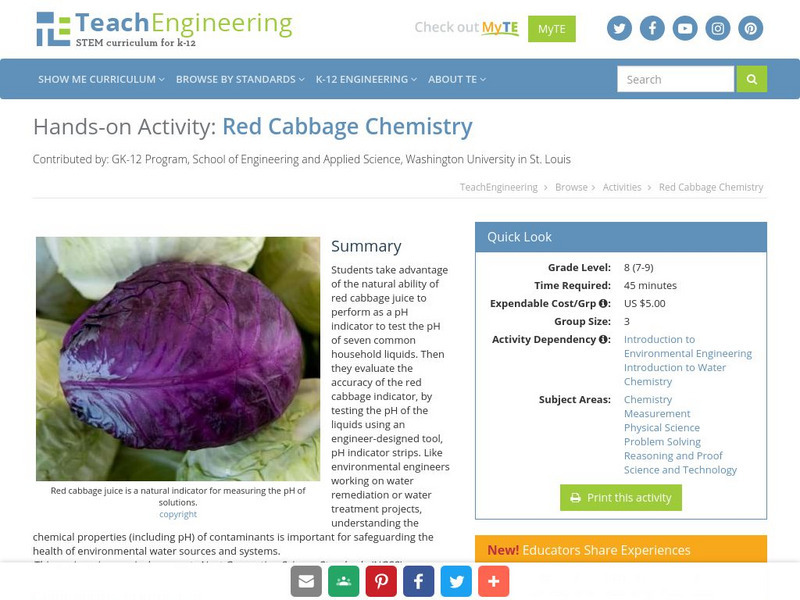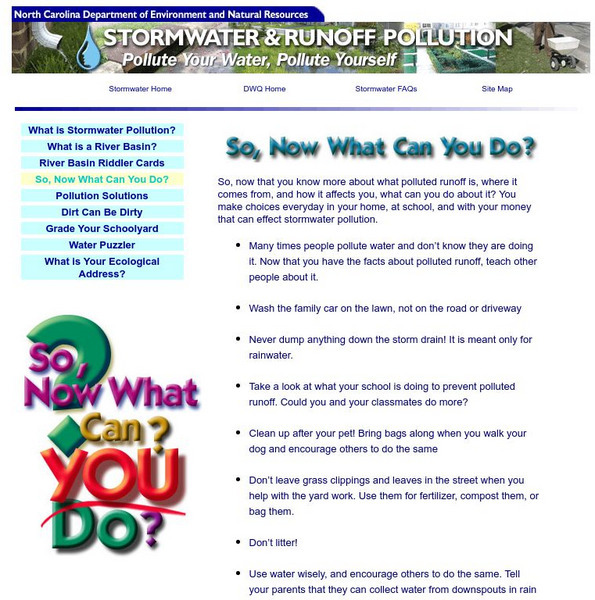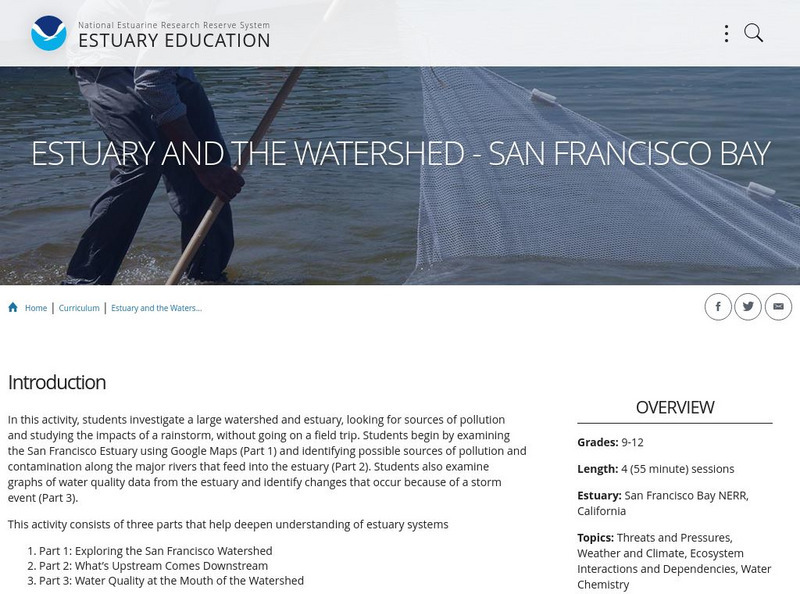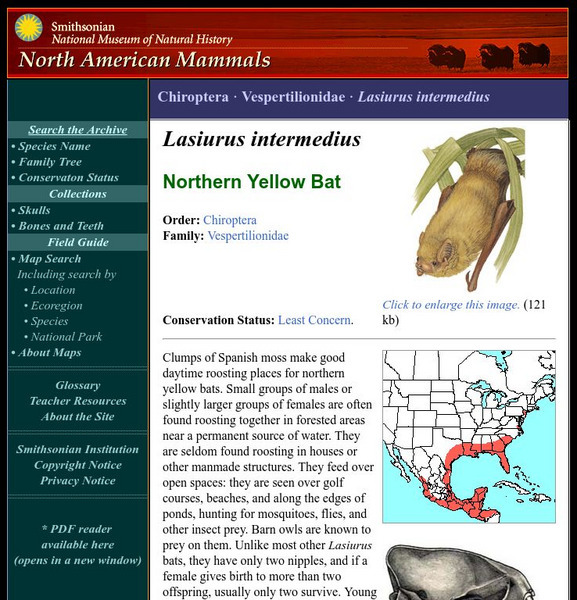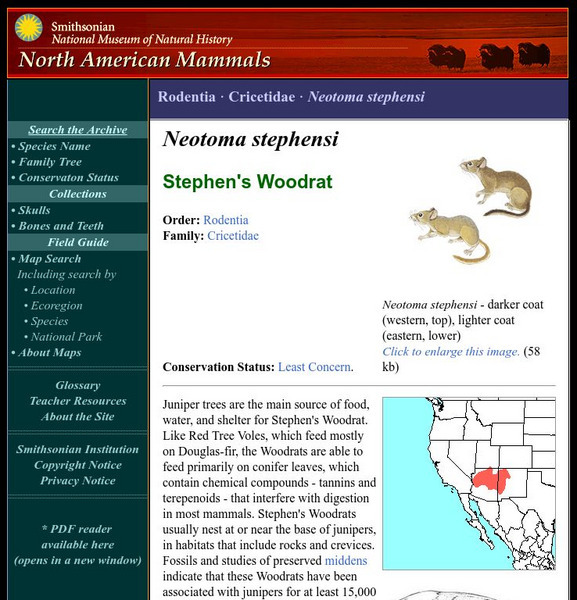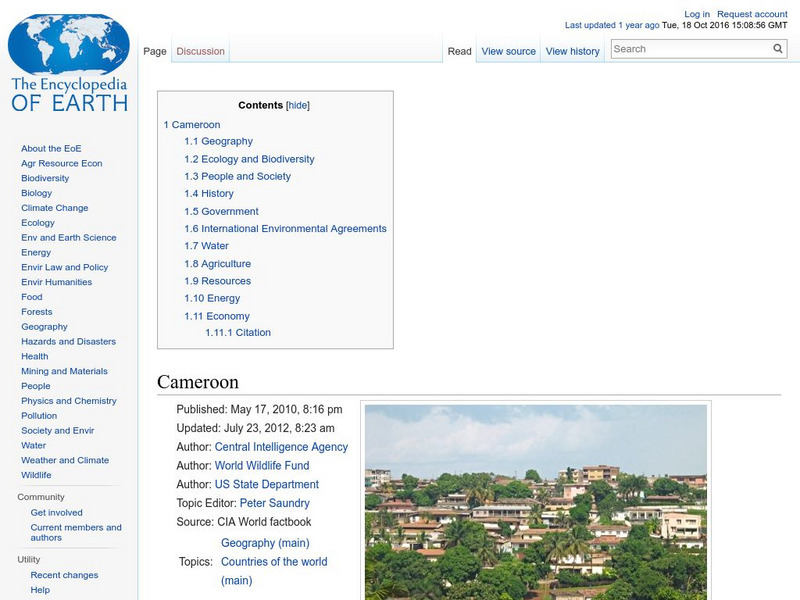Other
North Carolina Department of Energy and Natural Resources: Pollution Solutions
Try to find at least eight things in the picture that could cause litter, waste, or other pollutants to end up in the storm drain and eventually flow into nearby lakes and streams. Includes a link to an interactive page of this activity....
Nature Conservancy
The Nature Conservancy: From America's Rainforest to America's Desert
On this virtual field trip, teachers will help their students travel to the lush, rain-soaked splendor of the Olympic Peninsula and explore the urban watershed of Seattle. Next, they will head to Arizona's dry, desert landscape and take...
TeachEngineering
Teach Engineering: Photosynthesis Life's Primary Energy Source
This lesson covers the process of photosynthesis and the related plant cell functions of transpiration and cellular respiration. Students will learn how engineers can use the natural process of photosynthesis as an exemplary model of a...
Other
Abc Da Energia
ABC Da Energia describes the many ways that energy can be obtained and conserved. It explains different sources of energy, how each works, and how energy can be saved in our daily lives. Interactive energy-saving activities and games...
Other
The Dirty Dozen Persistent Organic Pollutants
Use this site to learn about the effects of persistent organic pollutants on the ecology of Antarctic coastal waters. Information is presented for both teacher and student researcher.
American Geosciences Institute
American Geosciences Institute: Earth Science Week: Properties of Fluids in Reservoirs
This investigation will help students understand the physical relationships between natural gas, oil, and water in a reservoir and how these relationships can affect recovery.
The Franklin Institute
The Franklin Institute Online: Slick Sea Spills
Use this site to promote environmental awareness in your classroom with this instructional activity on the effects of oil spills on water habitats.
Other
Florida Dept. Of Education: Conservation of Renewable and Nonrenewable Resources
In this learning module, students learn to differentiate between renewable and nonrenewable resources, and identify resources that fit into each category. It explains the environmental effects of using nonrenewable resources, such as...
TeachEngineering
Teach Engineering: Red Cabbage Chemistry
Students take advantage of the natural ability of red cabbage juice to perform as a pH indicator to test the pH of seven common household liquids. Then they evaluate the accuracy of the red cabbage indicator, by testing the pH of the...
Other
Nc Department of Energy and Natural Resources: So, Now What Can You Do?
A list of ways people can make good choices in everyday activities so as not to contribute to stormwater pollution.
PBS
Nh Pbs: Nature Works: Rivers and Streams
Learn more about Rivers and Streams through this educational resource. This site features photographs, a description, fun facts, and more about this type of freshwater ecosystem.
Louisiana Department of Education
Louisiana Doe: Louisiana Believes: Ela Unit: Grade 2: Thirsty Planet
Second graders learn about the water cycle and the role of water in nature. Through various descriptions of water's journey throughout the world and the lives that depend on it for survival, 2nd graders come to appreciate the importance...
TeachEngineering
Teach Engineering: Environment
Through 10 lessons and more than 20 hands-on activities, students are introduced to the concept of an environment and the many interactions within it. As they learn about natural and human-made environments, as well as renewable and...
TeachEngineering
Teach Engineering: Rolling Blackouts & Environmental Impact
The goal is for the students to understand the environmental design considerations required when generating electricity. The electric power that we use every day at home and work is generated by a variety of power plants. Power plants...
NOAA
Noaa: Estuaries 101 Curriculum: Estuary and the Watershed San Francisco Bay
In this activity, students investigate a large watershed, look for sources of pollution in the watershed, and study the impacts of a rain storm on a watershed and estuary, without going on a field trip. Students investigate the nature of...
Curated OER
Science Kids: Science Images: Water Pollution
This image helps highlight the problem of water pollution that can effect various rivers, lakes and other sources of water.
Smithsonian Institution
National Museum of Natural History: American Mammals: Northern Yellow Bat
Clumps of Spanish moss make good daytime roosting places for northern yellow bats. Small groups of males or slightly larger groups of females are often found roosting together in forested areas near a permanent source of water. Learn...
Smithsonian Institution
National Museum of Natural History: American Mammals: Stephen's Woodrat
Juniper trees are the main source of food, water, and shelter for Stephen's Woodrat. Like Red Tree Voles, which feed mostly on Douglas-fir, the Woodrats are able to feed primarily on conifer leaves, which contain chemical compounds -...
US Geological Survey
U.s. Geological Survey: The Usgs and Science Education
"Explore things on, in, around and about the earth," with this web site dedicated to K-12 education from the United States Geological Survey. Homework help, science topics and fun learning games for students in Kindergarten through High...
Other
Vitamin C Supplementation
Know the difference between getting enough vitamin C and overdosing, learn how vitamin C helps those with certain health problems, and find out whether or not you should be taking a vitamin C supplement. This site also includes...
Encyclopedia of Earth
Encyclopedia of Earth: Burundi
Facts about Burundi including environmental issues, geography, government, people, water, economy, agriculture, health, natural resources, energy resources, and conflict.
Encyclopedia of Earth
Encyclopedia of Earth: Cameroon
Facts about Cameroon including environmental issues, geography, government, people, water, economy, agriculture, health, natural resources, energy resources, and conflict.
Science Education Resource Center at Carleton College
Serc: Michigan Environmental Education Curriculum Module Index
Series of self-guided tutorials covers the topics of water quality, ecosystems, biodiversity, and energy sources including a summary of important concepts as well as a glossary.
Other
Planet Ark: World Environmental News
Welcome to Planet Ark's daily Reuters World Environment News - the most comprehensive source of environmental news on the Net. To read previous news stories, please use the search engine below to find stories relating to any...










